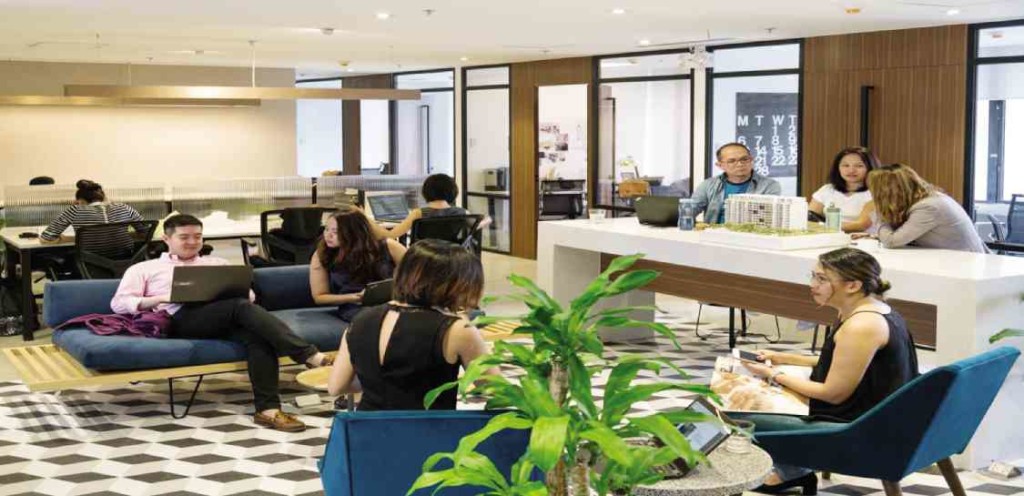PH startup companies prefer tapping foreign market to boost growth

Clock In’s coworking spaces encourage collaboration and a sense of community among startup companies and independent entrepreneurs. INQUIRER file photo
More than half of local startups that want to grow said that they are looking into tapping the markets outside the country, implying that the Philippines may “not be ready for” the products that they have to offer, findings of a recent study suggested.
According to the 2017 Philippine Startup Survey, 61 percent of startup companies in the country said that they want to enter new territories outside of the Philippines as part of their “strategies for growth in the next three to five years.”
The study, conducted by PwC Philippines, is the first of its kind that surveys 106 startup founders in the country, providing a snapshot of the local ecosystem comprised of an estimated number of more than 200 active startups, officials said. The survey, which was conducted in the past two months, included 22 face-to-face interviews.
PwC Philippines Chairman and Senior Partner Alexander Cabrera said in a press briefing yesterday that exploring the market outside the country does not necessarily mean that these companies would “drop the Philippine market.”
“They care about the timing of these opportunities because opportunities may no longer be there in a brief while. That’s the nature of technology. That’s not really giving up the Philippine market,” Cabrera said.
Asked to clarify if not dropping the local market also meant maximizing it, he said that local consumers may not be ready for the products and services of these startups.
“If the Philippine market can be maximized, I’m sure it would be. But you also need to admit that there are a lot of these products that the Philippine market is not ready for,” he explained.
Local traditional businesses, he said, would more likely focus on their core market here in the Philippines. On the contrary, startups are “so obsessed with the potential of (their) products” that going regional, or even global, has become a “natural tendency.”
Trade Undersecretary Nora Terrado said in the same briefing that startups are distinct from traditional businesses because of how they incorporate a “digital component” into their business that would disrupt or innovate the way operations are being normally done. Startups don’t necessarily have to be app-based.
Other strategies for growth in the next few years, according to the findings, pointed to a plan to improve existing products or services (as said by 84 percent of respondents), and introduce new products or services (79 percent).
However, when exploring other areas in the Philippine market is also being considered, the findings showed that 95 percent of startups want to enter new territories. About 56 percent cited other areas in the country, 59 percent in Indonesia, 57 percent in Thailand, and 55 percent in Malaysia, among others.
About 35 percent of the founders interviewed launched their startups in 2016, while 19 percent launched it last year, which are noticeably larger than the previous years. About 11 percent of the startups began before 2012, 4 percent in 2012, 6 percent in 2013, 14 percent in 2014, and 11 percent in 2015.
Upon starting their operations, a significant number of these startups cited the following as top challenges: capital requirements (88 percent), regulatory requirements (54 percent), and general economic/business conditions (50 percent).
To build sustainable businesses, more than half of the respondents said that the top focus areas of improvement should be tax incentives for startups, ease of doing business, and access to capital.
These are part of the findings of the survey, which will be released during Slingshot ASEAN: Startup and Innovation Summit on Friday in Manila. PwC Philippines partnered with QBO Philippines, the country’s first public-private initiative for startups, for the study. /jpv